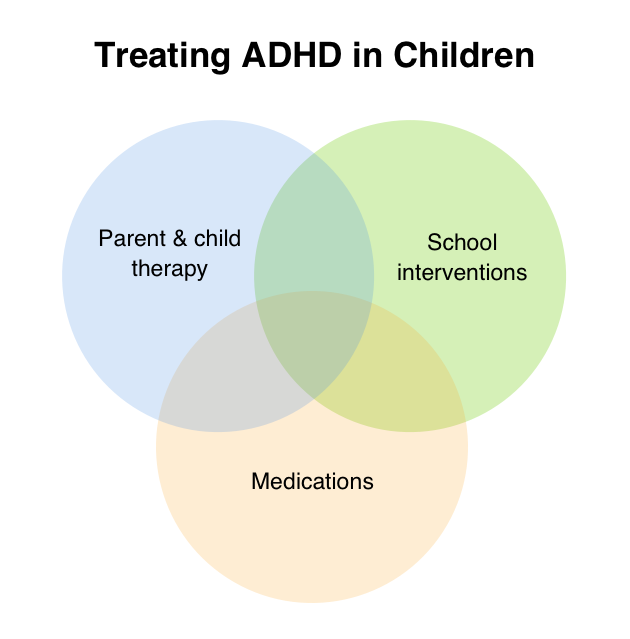Your Overview to Discovering the Right ADHD Therapy for Long-term Outcomes
Browsing the intricacies of ADHD treatment needs a nuanced understanding of both the disorder and the myriad alternatives readily available for effective monitoring. It is essential to recognize that what help one person may not necessarily generate the same outcomes for one more. Therefore, a customized method-- integrating specialist guidance, medication, behavior methods, and way of life modifications-- ends up being extremely important. The journey toward identifying the most suitable therapy plan can be stuffed with challenges. What are the vital factors that influence effective outcomes, and how can individuals guarantee they get on the ideal course?
Understanding ADHD and Its Influence

In adults, ADHD can cause obstacles in workplace atmospheres, affecting productivity, time administration, and interpersonal partnerships. Often, undiagnosed or improperly managed ADHD can add to co-occurring mental health concerns, such as stress and anxiety and clinical depression, further making complex a person's total health.
The societal assumption of ADHD can vary, bring about preconception and misunderstanding, which might hinder individuals from seeking help. As awareness expands, it is important to cultivate a setting that advertises understanding and assistance for those influenced by ADHD, emphasizing the requirement for precise medical diagnosis and customized approaches to minimize its effect on everyday life.
Review of Treatment Choices
A detailed method to treating ADHD encompasses a range of choices tailored to the person's special requirements. These options can generally be classified right into behavior interventions, psychoeducation, and way of life adjustments, alongside pharmacological therapies that might be discovered later.
Behavior treatments, such as cognitive-behavioral treatment (CBT), concentrate on customizing specific habits and creating coping strategies to take care of symptoms effectively. Psychoeducation plays a vital role in empowering both individuals and their families by offering information about ADHD, its challenges, and efficient approaches for assistance.
Way of living modifications can dramatically affect ADHD administration. Regular physical task, a well balanced diet regimen, and sufficient rest add to general wellness and signs and symptom control. Mindfulness practices and relaxation methods can also enhance focus and reduce impulsivity.
Assistance groups and household treatment can cultivate a sense of area and understanding, helping people feel much less isolated in their experiences. Each treatment option ought to be taken into consideration in conjunction with the person's choices and scenarios, making sure an all natural approach that promotes long-term success. Eventually, the objective is to develop a tailored treatment plan that you could try here resolves the specific challenges related to ADHD while boosting general quality of life.
Medication: Advantages And Disadvantages
Medication plays a pivotal role in the therapy of ADHD, with countless alternatives offered that can dramatically alleviate symptoms for several individuals. Energizers, such as methylphenidate and amphetamines, are frequently recommended and have shown efficiency in boosting focus, lowering impulsivity, and boosting overall habits. These medications function by increasing dopamine and norepinephrine degrees in the brain, which are frequently dysregulated in those with ADHD.
Some people might experience side results, including sleeplessness, decreased hunger, or raised anxiety. In addition, not all patients react to energizer drugs, leading some to discover non-stimulant choices, which might have a postponed beginning of action or various side impacts.
It is important for people and their families to weigh these advantages and disadvantages meticulously. Stabilizing the advantages of sign administration versus possible negative effects is essential for achieving ideal therapy results. Cooperation with doctor can facilitate informed decisions, guaranteeing that medicine is part of a detailed ADHD administration plan.
Behavioral Therapy Techniques

One commonly utilized technique is Cognitive Behavior modification (CBT), which helps individuals determine and change unfavorable idea patterns that add to ADHD-related difficulties. Therapist for ADHD. Through CBT, customers find out to set sensible objectives, handle time successfully, and develop organizational systems
Another effective technique is Parent Management Training (PMT), which educates parents on how to reinforce favorable actions and lower adverse ones via visit our website constant self-control and communication techniques. This method fosters a supportive home environment that urges behavior enhancements.
Social abilities training is also integral, aiding people with ADHD browse social interactions much more effectively. Role-playing and modeling appropriate actions can improve social proficiency and decrease anxiousness in social scenarios.
Way Of Life Changes for Better Monitoring
How can way of living modifications significantly improve the management of ADHD signs? Executing critical way of life alterations can result in significant improvements in emphasis, organization, and psychological regulation for people with ADHD.
First of all, developing a structured everyday routine assists in creating predictability, which can alleviate sensations of overwhelm. Regular schedules for dishes, research, and sleep can enhance day-to-day functioning.
Including regular physical task is also vital, as workout has been shown to improve dopamine degrees, improving interest and inspiration (Therapist for ADHD). Intending for a minimum of thirty minutes of modest workout a fantastic read most days can be helpful
Nourishment plays a pivotal function. A well balanced diet rich in omega-3 fatty acids, whole grains, and protein can sustain cognitive function. Restricting refined sugars and high levels of caffeine might lower symptoms, as these can lead to energy crashes and irritation.
Final Thought
In conclusion, locating the ideal ADHD treatment necessitates a complex technique that thinks about individual demands and preferences. Collaboration with medical care experts and open interaction with assistance networks are necessary components in browsing the complexities of ADHD monitoring, inevitably leading to enduring results and boosted high quality of life.